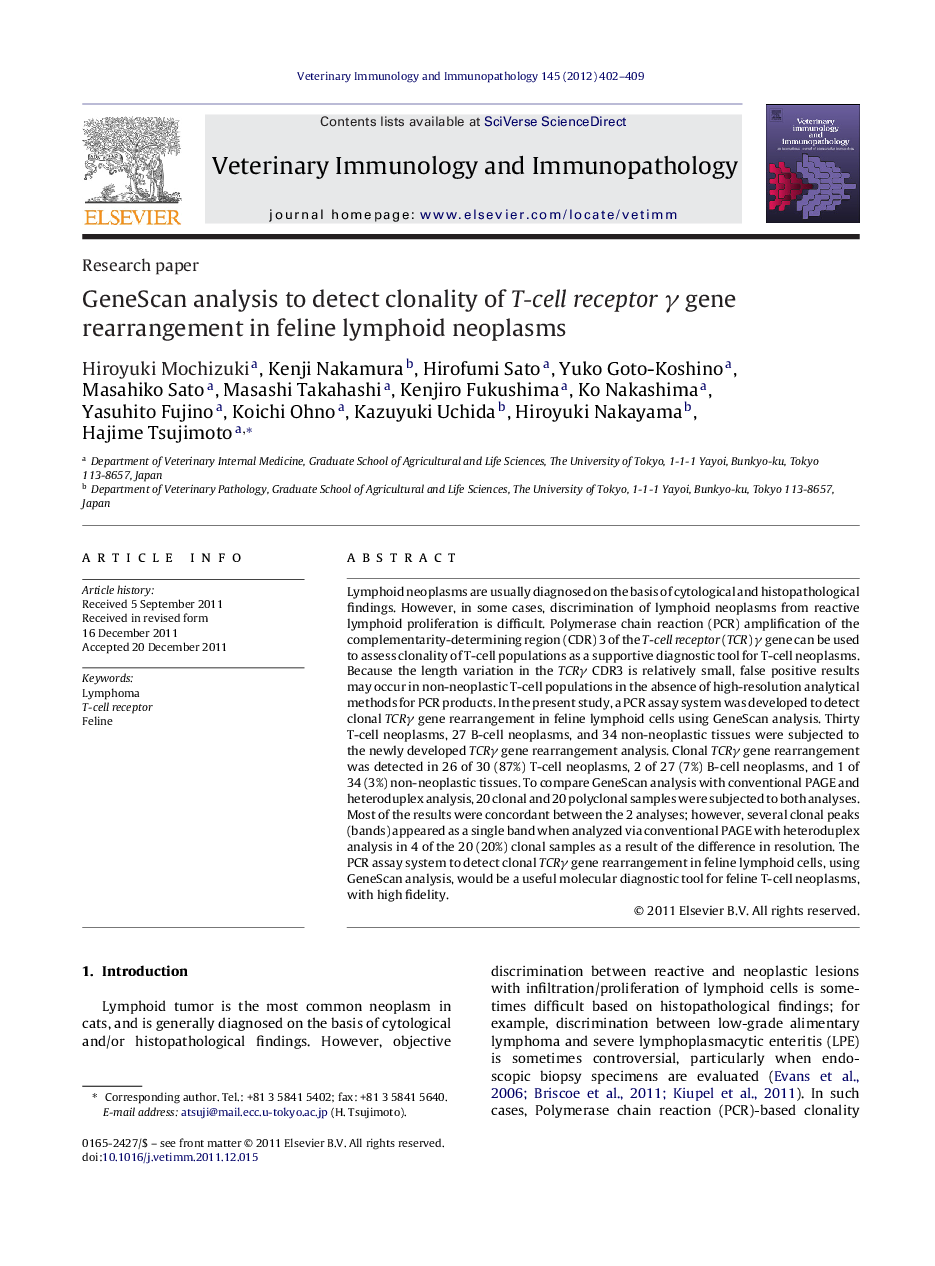| Article ID | Journal | Published Year | Pages | File Type |
|---|---|---|---|---|
| 2461942 | Veterinary Immunology and Immunopathology | 2012 | 8 Pages |
Lymphoid neoplasms are usually diagnosed on the basis of cytological and histopathological findings. However, in some cases, discrimination of lymphoid neoplasms from reactive lymphoid proliferation is difficult. Polymerase chain reaction (PCR) amplification of the complementarity-determining region (CDR) 3 of the T-cell receptor (TCR) γ gene can be used to assess clonality of T-cell populations as a supportive diagnostic tool for T-cell neoplasms. Because the length variation in the TCRγ CDR3 is relatively small, false positive results may occur in non-neoplastic T-cell populations in the absence of high-resolution analytical methods for PCR products. In the present study, a PCR assay system was developed to detect clonal TCRγ gene rearrangement in feline lymphoid cells using GeneScan analysis. Thirty T-cell neoplasms, 27 B-cell neoplasms, and 34 non-neoplastic tissues were subjected to the newly developed TCRγ gene rearrangement analysis. Clonal TCRγ gene rearrangement was detected in 26 of 30 (87%) T-cell neoplasms, 2 of 27 (7%) B-cell neoplasms, and 1 of 34 (3%) non-neoplastic tissues. To compare GeneScan analysis with conventional PAGE and heteroduplex analysis, 20 clonal and 20 polyclonal samples were subjected to both analyses. Most of the results were concordant between the 2 analyses; however, several clonal peaks (bands) appeared as a single band when analyzed via conventional PAGE with heteroduplex analysis in 4 of the 20 (20%) clonal samples as a result of the difference in resolution. The PCR assay system to detect clonal TCRγ gene rearrangement in feline lymphoid cells, using GeneScan analysis, would be a useful molecular diagnostic tool for feline T-cell neoplasms, with high fidelity.
